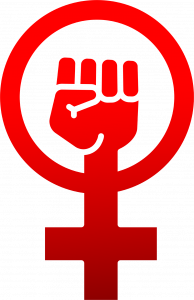How Does Addiction Rehabilitation Work?
URP is More than a Rehabilitation Center. It is a Place where Lives are Changed Forever. United Recovery Project: Addiction…
URP is More than a Rehabilitation Center. It is a Place where Lives are Changed Forever.
United Recovery Project:
Addiction is a chronic health issue for which there is no definitive cure. The consequences of alcohol and substance use disorders not only affect the person who is addicted, but they also affect that person’s loved ones and society as a whole. Understanding how addiction rehabilitation works may help clients get the most benefit from their treatment.
Addiction disorders affect more lives in the United States than most people realize. The National Institutes of Health estimates that 23 million U.S. adults have struggled with substance abuse at some point, and approximately 14.5 million people over the age of 12 have had an alcohol use disorder.
Sadly, too many people don’t survive their addiction issues. An estimated 100,306 overdose deaths occurred in 2021 alone.
People who engage in addiction treatment for the first time don’t always know what to expect when they decide to undergo rehabilitation. The first step is deciding which type of treatment program will best suit their needs.
Residential addiction rehab works by providing a high level of accountability. Clients live in a supervised facility where they have access to care 24 hours a day and participate in a daily schedule of treatments selected for their individual needs.
Partial hospitalization programs are considered to be a step down from residential treatment. They work by providing clients with a high level of support and daily therapy sessions. Participants return home or to their sober living residence daily.
Intensive outpatient programs may be the best option for people who have completed a treatment program in the past and have a solid foundation for recovery. Clients live at home so they can maintain career or childcare responsibilities.
Outpatient programs are the least intensive type of rehab program. They are ideal for people who have chosen to seek treatment early in their addiction and those who have recently experienced a minor relapse.
It may also be recommended for people who have recently completed an intensive outpatient program and need continuing professional support. Outpatient treatment works best for people who have a strong support network.
Each of these programs relies on a combination of therapies to help people heal from the physical, emotional, and psychological effects of substance use.
Cognitive-behavioral therapy is an evidence-based therapy that works by teaching people the skills they need to reverse negative patterns of thinking and behaving that can lead to drug or alcohol use.
Medication management helps patients manage their prescription medication schedules. This is especially helpful for people with co-occurring disorders. Managing additional mental health disorders is crucial to maintaining sobriety.
Individual and group therapy sessions provide an opportunity to discuss issues that may have led to substance use. Group therapy also provides an environment for non-judgmental support from peers and an opportunity to practice the interpersonal and communication skills discussed during individual therapy sessions.
Other therapies that may be included in a person’s customized treatment plan include:
Addiction rehabilitation works by addressing the needs of the individual, not by simply treating symptoms. A high percentage of people struggling with addiction issues have also experienced trauma and may be living with an additional mental health concern.
In fact, approximately 40% of individuals with a substance use disorder also have a mental illness. Addressing every aspect of a person’s well-being is necessary for positive outcomes with addiction treatment.
As a chronic health condition, addiction is often compared to other chronic conditions like hypertension or diabetes. Even when patients follow medical advice, relapses are possible.
A relapse in substance use does not mean rehabilitation didn’t or does not work any more than a relapse in hypertension means high blood pressure medication doesn’t work. It does mean that treatment plans need to be updated to reflect the person’s current health needs.
URP is based in Hollywood, Florida, where it was originally founded in 2016. URP offers an all-inclusive model of treatment that includes treatment programs that are tailored to each client’s specific needs.
The organization is in the process of expansion and currently operates facilities in both Florida and California. URP is committed to offering compassionate, evidence-based treatment to those struggling with substance abuse issues and their loved ones. Learn more about URP at unitedrecoveryproject.com.










